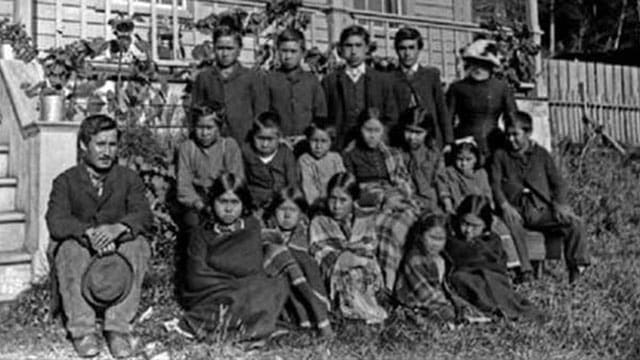How Christianity can help address past wrongs and foster reconciliation in Canada

For interview requests, click here
Article 18 of the Universal Declaration of Human Rights states:
“Everyone has the right to freedom of thought, conscience and religion; this right includes freedom to change his religion or belief, and freedom, either alone or in community with others and in public or private, to manifest his religion or belief in teaching, practice, worship and observance.”
We often forget that we not only have this right as humans, but we also have the responsibility to respect our neighbour’s freedom. So many wars have been fought over religion. Why is this concept so hard to understand?
Some people, primarily in Europe and North America, respond to this question not only by rejecting the concept of religion altogether but by openly criticizing their neighbour’s choice to follow a religion. They forget that faith and religion provide great comfort to people around the world, even to those living right beside them.
No religion is perfect. The teachings of any prophet can be bastardized, and an abusive monster can easily hide behind a veil of piety. Just like any human institution, religions are in a constant state of evolution. Just like any human, religious leaders make mistakes.
In a certain sense, the world is becoming more tolerant. We understand that it isn’t good to talk about others in a pejorative way. So why isn’t that applied to religions or the members of a religious group?
 |
| Recommended |
| Some ‘Christians’ deserve our anger and contempt
|
| There is power in faith to change lives
|
| Listen to your anger and learn from it
|
It’s not acceptable to classify all Catholic priests as pedophiles. It’s not okay to classify all white evangelicals as racist. It’s not okay to classify all Muslim men as terrorists and misogynists. It’s not okay to pass laws forbidding people from wearing clothing that identifies them as members of a particular religion, believing in some way that we are thus protecting everyone’s freedom.
When examining crimes against humanity, we need to recognize that the Holocaust didn’t begin with gas chambers; it began with words. Then came racist laws and the burning of houses of worship.
There has been a number of arson attacks on Christian churches in Canada recently. This didn’t happen because bodies were discovered at former residential schools. We’ve known for a very long time that mortality rates in these schools were extremely high and that the Canadian government chose to do nothing to save these children. We live in a country where the ground is frozen for much of the year. It’s not surprising that there are large numbers of shallow, unmarked graves near these schools.
Perhaps we need to look more closely in the mirror. All Canadians are responsible for the deaths of these children, not just the members of the Christian churches that ran the schools. Perhaps we’re scapegoating Christianity because it’s an easy target and because doing so allows us to avoid looking at ourselves.
If we list the societies that tolerated the burning of houses of worship throughout history, we might want to think twice about Canada being included in that group.
Christianity is important in the lives of many survivors of residential schools and their families. It’s not our place to judge these people. In discussing the burning of churches, elders continually tell us, “That is not our way.”
There is, however, a clear way of moving forward. All Canadians need to make themselves familiar with the 94 Calls to Action of the Truth and Reconciliation Commission and then implement them in their daily lives.
Pope Francis needs to come to Canada and apologize for the role of Roman Catholicism in running residential schools and his church needs to make meaningful acts of reconciliation.
The same is true for every institution that operated in Canada at the time, and the same is true for every Canadian.
Gerry Chidiac specializes in languages and genocide studies and works with at-risk students. He received an award from the Vancouver Holocaust Education Centre for excellence in teaching about the Holocaust.
Explore more on
The views, opinions, and positions expressed by our columnists and contributors are solely their own and do not necessarily reflect those of our publication.
© Troy Media Troy Media is committed to empowering Canadian community news outlets by providing independent, insightful analysis and commentary. Our mission is to support local media in building an informed and engaged public by delivering reliable content that strengthens community connections, enriches national conversations, and helps Canadians learn from and understand each other better.
